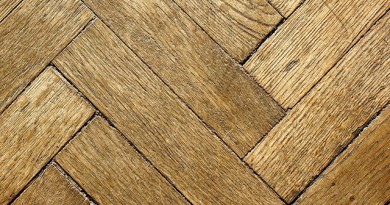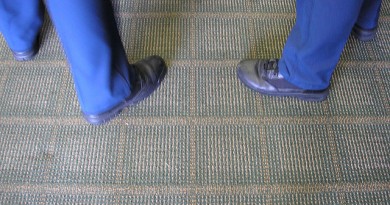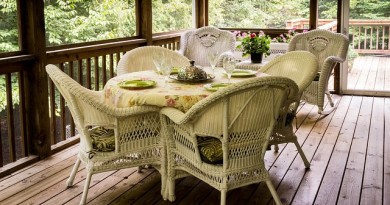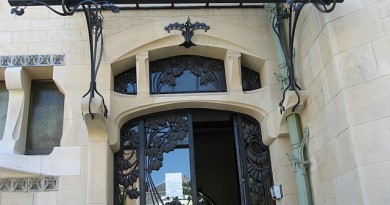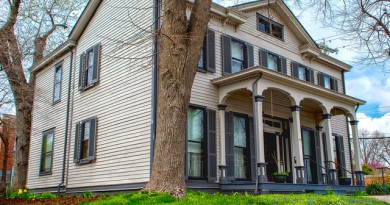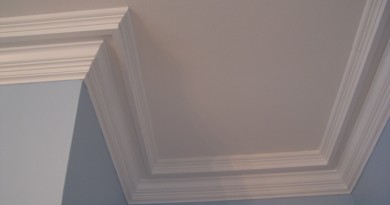How Much Does Bamboo Flooring Cost?
Bamboo flooring is emerging as an alternative to traditional hardwood flooring for a number of reasons. For starters, bamboo is generally considered to be ecologically friendly. Compared to wood (bamboo is a grass), bamboo grows much faster. This makes it a highly renewable material. Chinese Moso bamboo, from which most bamboo flooring is made, can grow almost 4 feet in 24 hours, and reaches full maturity in just 3 to 5 years. In comparison, traditional hardwoods like oak and maple can take anywhere from 20 to 100 years to reach full maturity. Bamboo flooring is strong and durable, and resistant to both insects as well as moisture. Bamboo is insect resistant in its natural environment as well, requiring little to no pesticides before it is cultivated.
Bamboo Flooring Installation Cost
The exotic appearance of bamboo flooring makes it a great choice for updating your home. So, how much does bamboo flooring cost installed?
Bamboo flooring installation cost is about $4 to $10 per square foot. This price is similar if not slightly less than that of traditional hardwoods. There are a number of different kinds of bamboo floors that differ in quality and price. Typically, the higher the price is, the better the bamboo is. Lower cost materials tend to be less mature, or less than 5 years old, thus softer and weaker. These cheaper alternatives might also not be as ecologically friendly, as they might contain formaldehydes or other volatile organic compounds that can be dangerous both to the environment and to human health.
Engineered Bamboo Flooring
When evaluating bamboo flooring cost it becomes clear that any discussion of this kind necessitates a survey of the various types of bamboo flooring. Engineered bamboo flooring prices run slightly higher at about $7 to $13 per square foot professionally installed. Engineered bamboo flooring uses a composite base, made up of sawdust or wood scraps held together with an adhesive resin. It is then topped with a thin layer of mature bamboo. Engineered bamboo is stronger than regular solid bamboo. The number of plies beneath the bamboo veneer determines the strength of the floor. More is better. Engineered flooring can be installed as a floating floor without the use of glue or nails, and is much less likely to shrink and expand than regular bamboo.
Strand Woven Bamboo Flooring
For a more high-end type of floor, you can choose strand woven bamboo. Professionally installed, strand woven bamboo can start at $10 a square foot and go as high as $18 a square foot. This flooring is made differently to be more durable, up to twice as strong as regular bamboo. The strand woven boards are sanded down and coated. Colors available are natural blonde and carbonized. Carbonized is an amber color that is attained by heat pressing the boards. Because of it hardness, strand woven bamboo is kid friendly and does very well in high traffic areas of the home, lowering bamboo flooring cost over time as repair and replacement is in most cases unnecessary for several years.
Carbonized Bamboo Flooring
Bamboo is carbonized in a steaming process using pressure and heat. This process results in an amber or brown color. The darker the desired color, the longer the process. This can also soften the bamboo by more than 20%. The carbonization process renders the flooring much softer than even pine and red oak. Carbonized bamboo is not ideal for high traffic areas, and is best used in a residential setting free of kids and pets. The cost of bamboo flooring of this type can be more expensive than regular bamboo by $2 or more, a square foot. Its advantage is that it can be customized to match other colors in the home. Because it is not stained, the color lasts much longer. The durability of the product is highly affected by the finish that is applied, which can help protect the much softer alternative. Still, the cost of the finish should be considered and factored in when evaluating the cost of bamboo flooring of this type.
Commercial Bamboo Flooring
For commercial grade applications of bamboo flooring, strand woven bamboo would work best. Commercial flooring usually needs to be stronger and more durable because of the high foot traffic expectations, subsequently raising bamboo flooring cost when dealing with bamboo flooring for commercial settings. The softer carbonized variety will not stand up to constant commercial use. The manufacturing process for strand woven varieties is geared towards producing a harder and longer lasting surface. This commercial grade flooring is more expensive than the residential kind. Bamboo flooring cost here can run close to $20 a square foot depending on the quality and the strength of the material.
Natural Bamboo Flooring
Natural bamboo is an exceedingly popular choice. However, just because it is natural does not mean that color choices are overly limited. Natural bamboo flooring comes in a variety of shades. It offers a striking appearance that is much brighter and cleaner than other shades of bamboo. Choosing a darker edge can help break up the light colors, or a design can be worked in to the middle of the floor using darker colors. Natural bamboo is much stronger and more durable than carbonized bamboo, which makes it a better choice for families with children and pets. It is also the better choice for higher traffic areas, and can have some commercial application in that regard.
Bamboo Flooring Pros And Cons
As with any type of flooring material, bamboo has its advantages and disadvantages. One of the first advantages is environmental. Bamboo is a fast maturing plant, making it more renewable than wood. Some critics have stated that traditional forests are being torn down to plant the faster growing bamboo. Still, bamboo floors are strong and long lasting. They are also moisture and pest resistant. They are striking in color and appearance. Bamboo flooring cost is also very reasonable as a result of the low cost of materials necessary for its installation.
Bamboo being an Asian plant, almost all bamboo flooring comes from China, which can raise several concerns. For those interested in the bamboo as an environmentally friendly alternative, there is concern for the carbon footprint caused by the shipping of the product overseas from China by ship and then by truck. Labor and work safety regulations in China are not very strict, meaning that the product might be manufactured in less than ideal conditions for both the workers and the environment. China is not the only producer of bamboo, however, and many dealers will be happy to reveal the country of origin for the flooring material you wish to use.
Cheap bamboo makes for cheap floors. Bamboo that is 5 years old is ideal. Anything less than that will lower bamboo flooring cost, but will also not be as reliable a product as fully mature bamboo.
- 726SHARES

